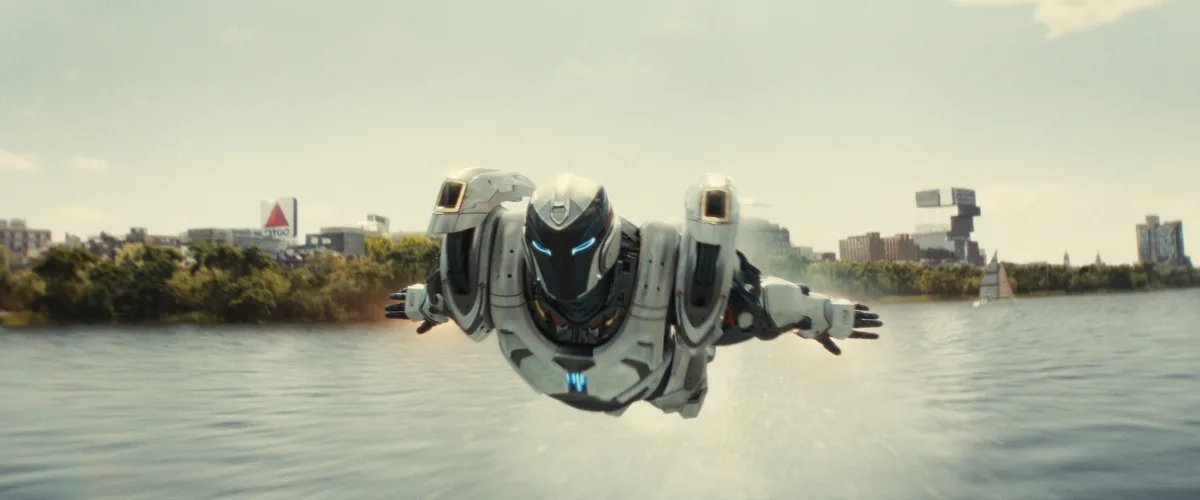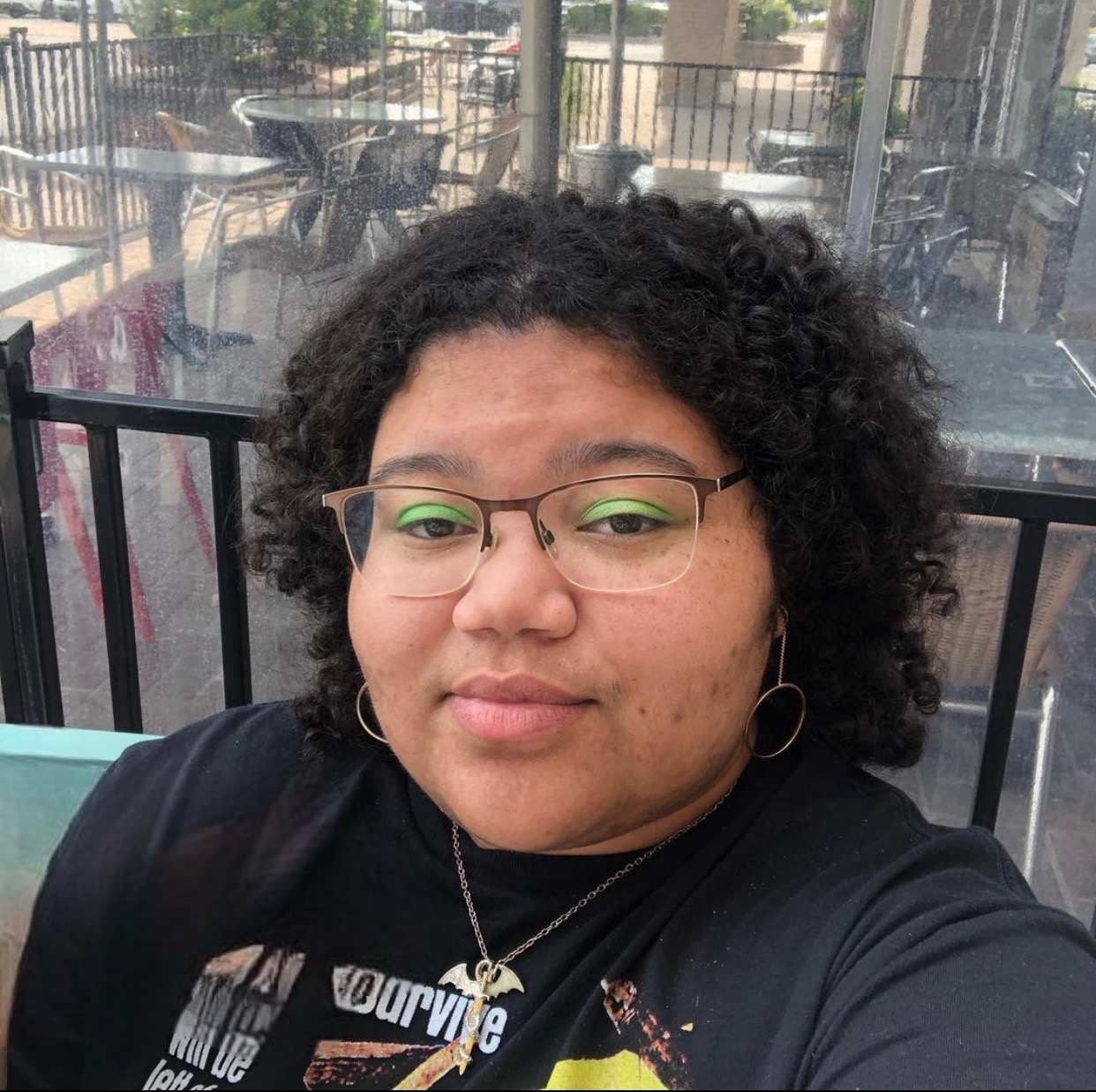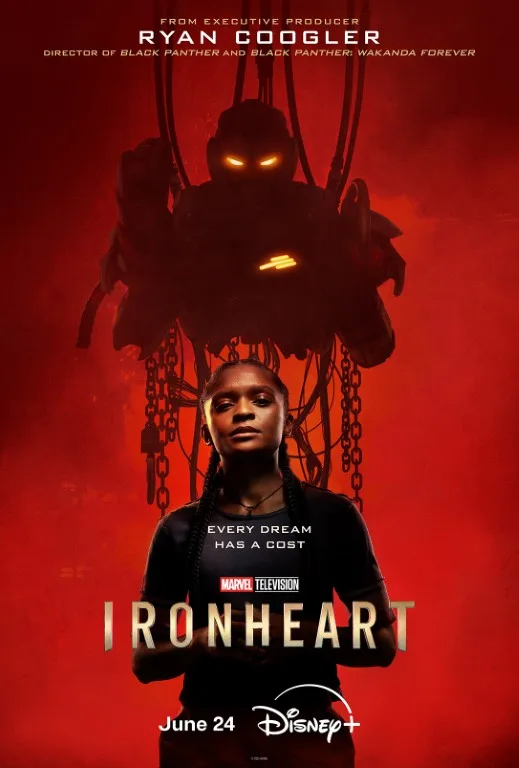“I’m here because I can be the greatest inventor of my generation.” That bold declaration marks the opening line from Riri Williams (Dominique Thorne) in Marvel’s upcoming series “Ironheart.” Jumping off from the events of “Black Panther: Wakanda Forever,” the show centers on the brilliant young MIT student who is reeling after the events of the film in which she was introduced. An admirer of Tony Stark’s influence on technology, she has taken the steps to building her own Iron Man suit, determined to forge her own legacy amidst personal strife and financial constraints.
Despite spending more than four years at MIT, Riri Williams still hasn’t earned her degree. To make ends meet, she begins selling completed assignments to students across the state—a side hustle that quickly catches up with her. After being expelled, she returns home to Chicago, where she’s forced to confront the pain she’s long tried to suppress through her work. The death of her stepfather, Gary (LaRoyce Hawkins), and her best friend Natalie (Lyric Ross) loom over her head like a black cloud; a constant and crushing weight that often forces her to leave her work forgotten.
She’s quickly recruited by Parker Robbins (Anthony Ramos), also known as The Hood, who recruits Riri by trapping her in a malfunctioning elevator filled with toxic gas to test her loyalty and skill. She escapes using a mix of intellect and grit, earning the respect of Parker and his disciples. Although Parker’s motivations worry her, desperate for money (of which he’s offering a lot), she reluctantly joins him and his team. The Hood and Riri are both simultaneously fascinated with each other, seeing a piece they long buried within themselves inside of each other. Parker presents himself as someone who genuinely cares about his team, but his methods (and the mysterious, enchanted cloak he wears) begin to fracture that image.
As their uneasy alliance deepens, Riri finds herself caught between empathy for Parker’s struggle and fear of where his path might lead. Most of “Ironheart” is quite grounded despite the magical aspects that the show slowly attempts to weave into the story. But this blend of tech and magic doesn’t always land; instead, it weighs the series down, leaving it bloated and uneven. At its core, the show struggles with a central question: Who is Riri Williams beyond the suits she builds? We’re told she’s a genius, and her admiration for Stark’s tech is clear, but the emotional and philosophical “why” behind her drive to become a hero remains underexplored through most of the series.
“You’ve lived your lives waiting to be seen; waiting to be acknowledged for your greatness. Well, I see you,” Parker tells Riri and his disciples in one of the most engaging speeches he makes in a series chock-full of them. In a post-“Thunderbolts*” Marvel landscape, a show focusing on the ragtag group found in this series could be what the MCU needs. But “Ironheart” is Riri’s story—or at least, it’s supposed to be. The inclusion of so many characters and subplots, while mildly entertaining, ultimately dilutes her arc. The ensemble cast has strong chemistry, but their presence shifts focus away from the titular character, doing a disservice both to Riri’s development and the team’s untapped potential.
One of the series’ saving graces is the introduction of Joe McGillicuddy (Alden Ehrenreich), a hyper-focused, tech-savvy loner whose unlikely friendship with Riri adds unexpected depth to an otherwise muddled series. When Ehrenreich and Thorne share the screen, the show shifts into a more intimate and compelling story. It’s one about two outsiders grappling with legacy, identity, and the pressure to defy the roles the world has boxed them into. Their intimate dynamic brings genuine warmth to the series, and in their absence, the show noticeably loses some of its spark.
When the two are on screen together, “Ironheart” becomes a completely different show. In the moments Ehrenreich and Thorne share, it feels like the series is genuinely invested in telling a personal, character-driven story. But that momentum is repeatedly stalled by the weight of the Marvel Cinematic Universe, which crushed each of these intimate interactions under the weight of the franchise’s biggest failures. Rather than focusing on Riri’s relationships with her city, her family, and the new bonds she’s forming, the show too often attempts to tie Riri to the MCU projects of yore. It becomes less about who she is and more about where she fits in Marvel’s sprawling timeline.
It’s a shame that the series seems so intent on burying its lead beneath the rubble of the dying franchise to which she belongs, because Thorne delivers a performance that’s nothing short of revelatory. She captures Riri’s cockiness with ease, radiating a bravado and charisma that not many of these new characters have. As she’s swept up in a life that becomes increasingly dangerous, Thorne’s face shudders under the pressure of Riri’s sorrow, eyes wide in fear and body unmoving in a perpetual state of grief. She’s a shining light in a series that feels shrouded in darkness and almost feels desperate to bore viewers less they get attached to this captivating character, and who she could have been.
All episodes were screened for review.




















